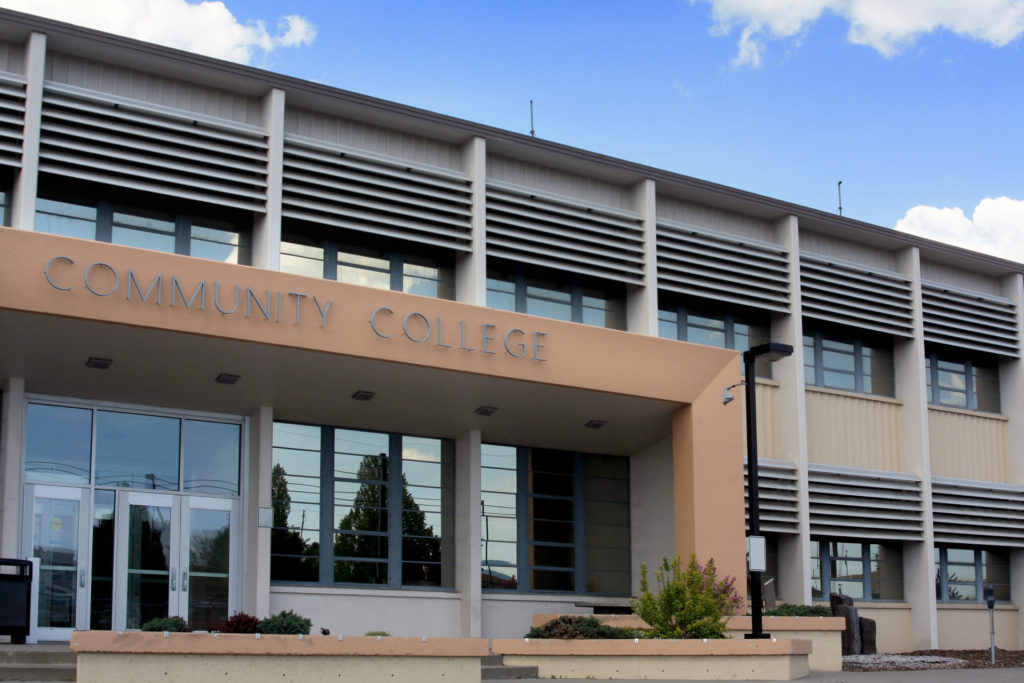
Alternative Career Paths: Blending trade school, community college, and work experience
Posted by
Considering Non-traditional Career Paths
High school graduation marks a huge milestone for teens and their families, and for a long time, the best path forward was clear: attending a four-year college or university. But guess what! The world has changed, and so have the options for life after high school. There’s been a growing movement recognizing and celebrating that not every high school graduate needs to (or even should) go directly to a traditional college. In fact, some of the most in-demand, well-paying, and personally rewarding career paths come from taking a different approach.
This article introduces alternative career paths that blend the hands-on learning of trade schools, the flexible and affordable education of community colleges, and the invaluable experience gained from working. TeenLife is here to show you how choosing these options can lead to successful, fulfilling career paths tailored to your goals, skills, and interests.
Alternative career paths
Looking for a good career path, maybe one that doesn’t require a four-year college degree? There’s no shortage of in-demand career paths to choose from. And if you’re wondering, “What is a career?” —or how you can have a career without a bachelor’s degree — look no further!
If you’re looking for a fast track to a great job, prefer hands-on learning, or want to gain more specialized skills, there are many avenues to a successful career. Consider trade schools! Trade schools, vocational programs at community colleges, and apprenticeships provide focused, hands-on training for specific skilled trades like:
- Automotive mechanics
- Cybersecurity specialists
- Electricians
- HVAC technicians
- Medical assistants
- Veterinary technicians
- Welders
These programs take less time to complete than a 4-year degree, getting you into the workforce and earning a good salary sooner and with less debt.

What is a career?
You’ve probably heard the word “career” used a ton, especially as you get closer to graduating from high school. But what does it really mean? A career is more than a job — think of it as a journey through the world of work. Consider it a career path, if you will.
A career is rarely one job you get and do for the rest of your life. Are there exceptions? Sure. Some people graduate with a career plan of teaching, get hired by a school district, and spend their entire professional life in the same classroom.
But usually, career paths involve a series of jobs, experiences, and learning opportunities that build on each other over several decades. You might start in one role, gain skills, and then move up or even switch to a different, but related, career field that interests you more. Throughout your career, you constantly learn new things, solve problems, and develop new skills while refining existing ones. You become better at what you do, and discover more things you love.
A good career path typically aligns with what you enjoy doing and what you’re good at. A career can also give you a sense of purpose and fulfillment. You can contribute to society, use your talents, and achieve your financial goals so you can live the life you want.
Researching career options
High school is the perfect time to research your career options, whether you have an inkling of what you’d like to do or not. You don’t have to pick your “forever job” right now, but doing a little career exploration can help you figure out what you like, what you’re good at, and what career paths might be a good fit for you.
Start with self-reflection
Before you look outwards, look inwards. Consider your interests. Are there classes you love in school? What do you do in your free time that makes you lose track of time because you’re enjoying yourself (e.g., building things, playing games, practicing an instrument, helping people, creating art, solving puzzles)?
Think about your strengths and skills. Are you a good communicator? Are you detail-oriented? Do you like working with your hands, data, or people? Ask adults you trust (your parents, teachers, coaches) what they see as your strengths.
What values are important to you? Do you want a job that helps others? One that’s creative? Also, consider how your job will affect your lifestyle. Do you want one that offers a lot of stability or high pay? Do you want to be traveling every week, working weekends, or have the flexibility to work from home?
Take career quizzes and assessments
Another fun way to get ideas and connect your interests to potential careers and narrow down career options is to try an online quiz or assessment:
- O*NET Interest Profile (sponsored by the U.S. Department of Labor) is a comprehensive tool that helps you explore careers based on your interests.
- CareerOneStop has assessments, job market trends, and videos.
- ASVAB’s Career Exploration Program, a free career planning resource you can often access through your school, includes aptitude tests and an interest inventory.
Talk to people
Talking to people is one of the most valuable ways to research potential career paths. All you need is an informal conversation with someone working in a field that interests you. Start with family, friends, neighbors, teachers, or your school counselor and ask them if they know anyone working in a field you’re curious about.
Send a polite email or ask a mutual contact for an introduction. Explain that you’re a high school student considering a good career path and would love 15-30 minutes of their time. Once you make that connection, ask questions like, How did you get into this field? What does a typical day look like? Are there things you enjoy most/least? What skills are most important? Do you have any advice for someone just starting out?
Get hands-on experience
Nothing beats actually trying things out!
- Job shadowing allows you to spend a few hours or a day observing someone at their workplace. You get a firsthand look at what they do, their work environment, and common interactions.
- Volunteer in an area related to your interests. Curious about healthcare? Volunteer at a hospital. Love animals? Volunteer at a shelter.
- Part-time jobs are great for teaching skills like responsibility, time management, and teamwork. A part-time job can help you understand what you like (or don’t like) in a work environment.
- Internships may be an option, too. These short-term, paid or unpaid opportunities provide real-world experience in a specific field.
- School clubs and projects like robotics, debate, art club, auto shop, computer programming/coding club, or culinary arts give you hands-on experience and a chance to explore.
How to build a career plan
Building a career plan might sound like something you do later in life, but taking this step is really about figuring out what you enjoy, what you’re good at, and what kind of future you want for yourself.
Here are some steps for building a solid career plan.
- Dream big and define your vision. Start by thinking about what a successful, fulfilling life looks like to you. What kind of jobs excite you? What impact do you want to make? Don’t be afraid to envision different possibilities for your career path.
- Discover your strengths and hidden talents. Think about what you’re naturally good at, even if it doesn’t feel like a skill right now. Are you an excellent problem-solver? Do you love working with your hands? Are you good at organizing things or people? Your abilities can give you clues to potential career options that rely on these skills.
- Look back at what you’ve done so far. Even as a high school student, you’ve had experiences that can help determine a good career path. Think about classes you’ve enjoyed, clubs you’ve joined, part-time jobs, volunteer work, and hobbies. What did you learn from them? What did you love (or loathe)?
- Explore different career options. Research various jobs and industries that pique your interest. What do people in those careers do every day? What kind of education or certifications do they have? Once you answer those questions, you can start looking at trade schools, community colleges, and apprenticeship programs that offer the training you need.
When to go to trade school
While a four-year college or community college is the right fit for many students after graduation, trade school is another viable option, depending on your career plan. Here are a few reasons why attending trade school may make sense for you.
- You learn by doing. If you thrive with hands-on learning, practical application, and working directly with tools and equipment, trade school may be a great fit. Instead of spending years in lecture halls, you’ll be actively learning the skills you need for a specific career path.
- You want (or need) to start working and earning sooner. Trade school programs are generally shorter than four-year college degrees, often taking anywhere from a few months to two years. Faster training means you can begin earning a solid salary sooner.
- You want to avoid (or minimize) student loan debt. Trade schools cost significantly less than traditional colleges and universities. By choosing a skilled trade, you can often graduate with little to no student loan debt, which gives you a considerable head start on your financial future. And if you do need a little help affording the training, many of these schools also offer scholarships and other forms of financial aid.
- You’re looking for job security and high demand. Because many skilled trades are experiencing a worker shortage nationwide, you have numerous career options with excellent job prospects and long-term security. Many of these trades are essential jobs that can’t be outsourced or easily replaced with automation.
- You prefer a smaller, focused learning environment. Trade school classes tend to have fewer students than university lectures, enabling more individualized attention from instructors and a more personalized experience. You’ll often join a cohort of other students walking the same career pathway and pursuing the same educational goals.
- You appreciate (and want to take advantage of) direct job placement support. Many trade schools have strong connections with local businesses and industries. These schools offer dedicated career services to help you find internships, apprenticeships, and job opportunities immediately after graduation, facilitating a seamless transition into the workforce.

Why choose community college
Though sometimes overlooked, community college is another viable (and affordable) option for high school graduates. Community college enrollment has been increasing as more people recognize its value. In 2025, undergraduate enrollment at these two-year institutions increased by 5.4%; community colleges with a primary focus on vocational training experienced a 11.7% growth in enrollment. For some students, community college offers a great alternative to a traditional four-year college.
Reasons to consider community colleges:
- Community colleges are generally less expensive than four-year colleges, which can result in lower student debt later on. And you can live at home and save on room and board, making this option even more budget-friendly.
- If you need to work while attending school or have family responsibilities, community colleges offer flexible schedules with online, evening, and weekend classes, allowing you to balance your education with other commitments.
- Community college offers a low-pressure environment to explore different subjects and career options without incurring a ton of debt. You can even enroll and try out a course or two before committing to a full degree program.
- Many community colleges have career-focused programs that lead to certificates or associate degrees in high-demand fields, like healthcare, skilled trades, and technology. Many jobs require only an associate’s degree but still offer very competitive pay, and you can finish these programs in two years and jump right into your career field.
- Community colleges often have smaller class sizes than bigger universities, so you get more personalized attention from your professors and can really connect with them and your classmates.
- Think you might want a four-year degree eventually? Community college is a great way to start! Nearly all community college credits can transfer to a four-year university, so you can earn your general education credits (and even a certificate) as a start to your career plan at a lower cost, and transfer your credits and earn your bachelor’s degree later. It’s a strategic shortcut to saving money and opening up even more career options later.
- Want to get a head start before you graduate? Many schools work with community colleges to offer dual enrollment programs where you can take college classes while you’re still in high school. You earn college credits that count toward your future degree, shortening your time in college later and saving you money.
The value of work experience
Do you have a part-time job? Work experience — even if it’s not related to your career pathway — can give you a huge boost for your future. Work experience helps you develop your “professional muscles” and gives you skills employers love to see, like:
- Responsibility and reliability: Showing up on time, following instructions, and completing tasks (even the not-so-fun ones) teach you accountability.
- Time management: Juggling school, a social life, and a job forces you to become a pro at managing your time. You learn to prioritize and be efficient, critical skills for any career.
- A solid work ethic: You learn that earning money requires effort and dedication; you’ll learn the value of hard work, perseverance, and diligence.
- Communication skills: By interacting with customers, co-workers, and managers, you develop communication, customer service, and teamwork skills.
- Financial literacy: Earning your own money gives you a practical lesson in budgeting, saving, and understanding the value of a dollar.
- Confidence and independence: Successfully handling job responsibilities (even the small ones) can boost your self-esteem and make you feel more capable and confident.
- Career exposure: Even if it’s indirect exposure, any job gives you insight into how workplaces operate. You’ll see different roles, learn about workplace dynamics, and start to figure out what you like (and don’t like) in a work environment.
Apprenticeships can help you chart a good career path
As you evaluate your career options, you may decide an apprenticeship makes sense. For the skilled trades, apprenticeships take that work experience to the next level. They’re valuable because they offer:
- Hands-on, real-world training. You work on projects, use tools, and learn the practical side of the job from experienced professionals.
- A chance to earn while you learn. Many apprenticeship programs are paid positions, so you earn a paycheck while you’re learning and training.
- Direct mentoring. You’ll work with skilled professionals and master craftspeople who will guide you, teach you the tricks of the trade, and provide personalized feedback.
- The environment to develop specialized skills. Unlike general education classes, apprenticeships focus specifically on the technical skills and knowledge needed for your chosen career path. You’ll master the tools, techniques, and safety protocols for your job.
- Access to a professional network. You’ll meet people in the industry, like supervisors, coworkers, and clients. These connections can lead to future job opportunities, recommendations, and ongoing mentorship.
- Industry-recognized credentials. Apprenticeship programs often lead to nationally recognized certifications or journeyman status, which are valued (and required) by employers and open doors to more opportunities and higher salaries.
Career paths: Takeaways
- A successful and rewarding career doesn’t always require a traditional four-year college degree.
- Trade schools, community colleges, and direct work experience, such as apprenticeships, are great ways to prepare for various career options.
- Trade schools offer focused, faster training in high-demand trades, leading to quicker job entry and less student debt.
- Community colleges are affordable, flexible, and can provide vocational training, associate's degrees, or transferable credits to a four-year college or university.
- Part-time jobs teach essential “soft skills,” while internships and apprenticeships provide hands-on training and direct industry connections for specific trades.
- Career paths are a dynamic journey of continuous learning and growth, not just one fixed job, and should align with your interests and strengths.
- High school is an ideal time to explore career options through self-reflection, online resources, speaking with professionals, and gaining practical experience.
- Develop a career plan by envisioning your future, identifying your strengths, exploring options, and figuring out your next steps, remembering that a good career path may branch off here and there — and that’s totally okay!
Blog Categories
- Career Advice
- College Admissions
- Colleges & Universities
- Financial Aid and Scholarships
- For Counselors
- For Parents
- For Students
- Gap Years
- Mental Health and Wellness
- Online Learning
- Performing and Visual Arts
- STEM Majors and More
- Summer Programs
- Teen Volunteering
- Trade & Vocational Schools
- Tutoring & Test Prep

Organization with listings on TeenLife? Login here
Register for Free
We’re here to help you find your best-fit teen-centered academic and enrichment opportunities.
Forgot Password
"*" indicates required fields









